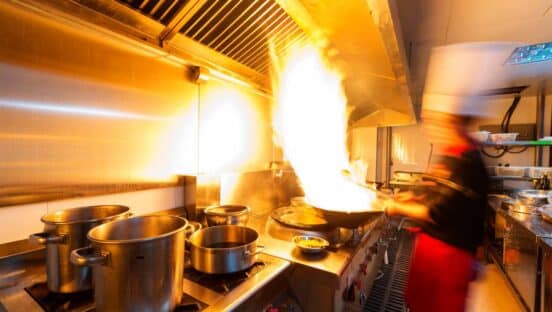Indian quick-service restaurants are already in the U.S.
Saravana Bhavan, an Indian-origin restaurant chain serving vegetarian south Indian food is already present in California, New York, Texas, and New Jersey. So, Let me start with the belief that even in the future, quick-service restaurants serving Indian food will continue to find their way to the United States. It’s a simple question of economics.
Years ago, when I visited Machane Yehuda market in Jerusalem, I was looking forward to tasting the “Zaatar Naan.” When I visited Japan’s Takeshita Street, I was looking forward to the crepes. Such local delicacies have found their way into conversations thanks to social media. The whole of humanity converges on the irresistible appeal of good food. Moreover, people are largely similar in their consumption patterns world over. Their cultural beliefs, religious practices, and cuisine may be different, however, as the world becomes closer so do these differences become blurred. Quick-serves represent a kind of convenience food and hence their appeal straddles the individual differences.
Coming back to economics of international expansion—a lean and focused quick-service brand that starts to mean something to its audiences will always have a market. How many from India will make it: at least 36 should. India has 28 states and eight union territories, let’s imagine that we have at least 36 specialty cuisines to start with. The burgers that Jumboking sells started off as a more hip version of Mumbai’s vada pav—a local cuisine that sells like hot cakes. What is needed is a clear differentiation, a new niche and you find enough takers to get the brand a foothold in the new market and then grow from there. Four dishes that I believe have immediate potential and are already served in various parts of the world by international brand are:
- Indian Biryanis
- Naans and curries
- Indian chaat
- Cholle Bhature
Will India’s food that is flavorful, often spicy and rich, find a market? Again, the answer lies in convenience and economics. In India, we are not a Pizza or Burrito eating country. However, Dominos and Taco Bell have both come here and found audiences that like them.
The 21st century is the century of easy travel. People are settling in all parts of the world. And hence they are carrying the desire to replicate their own cuisine in different parts of the world. This itself might generate the economics of demand that will support Indian quick-serves to sprout in all parts of the world. I am also extremely bullish about franchising. When a local franchisor becomes a champion for an international brand, there is profitable synergy because of the following:
Franchising gives the local entrepreneur the benefits of entrepreneurship without many of the associated risks.
Franchising leverages the collective might of hundreds and thousands of entrepreneurs. When executed with the benefit of the franchisee at large there is no better way for organized retail to grow. The biggest beneficiary of this is the end consumer.
Franchising allows multiple micro-entrepreneurs to benefit from economies of scale which normally only big businesses enjoy.
Customer discovery and conversion are two of the greatest costs of any business. Franchising sorts these out for you. The cost savings on real estate, procurement and customer acquisition are manifold
In order to be able to benefit from a proven system like franchising, at first focused brands need to get created in India. This has already started happening. Indian quick-serves started getting created after international quick-service restaurants entered India in the mid-1990s and created a logistical framework. The organizations are young. Creating an efficient system, an ecosystem of suppliers and vendors, takes time. Processes have to get defined and re-defined. When these chains reach a threshold of 1,000-plus stores, it will be proof that they are ready for international expansion. There will also be a critical mass of locals that have made the brand known globally, thereby setting the stage for a global market.
It’s just a matter of time.
Dheeraj Gupta is the founder and MD of JUMBOKING Foods, India’s largest homegrown brand of vegetarian burgers. He has played a key role in the large-scale acceptance of franchising as a framework for doing business for the quick-service restaurant industry. He believes in establishing strong and symbiotic partnership with a cohort of numerous motivated individual entrepreneurs who want to benefit from the 10X advantages that a well-developed franchising system provides. His belief that such a model potentially creates a very inclusive and resilient growth engine, if coupled with a cohesive focused and disciplined team of professionals, have made him a young business icon of 21st century India.













